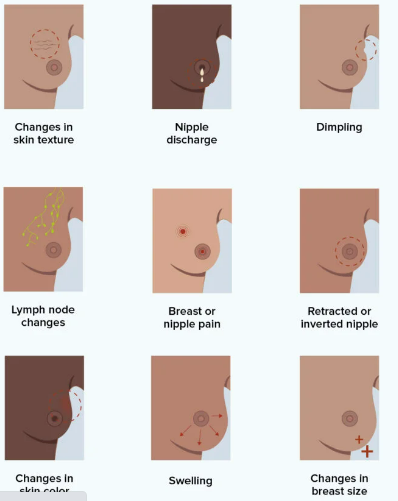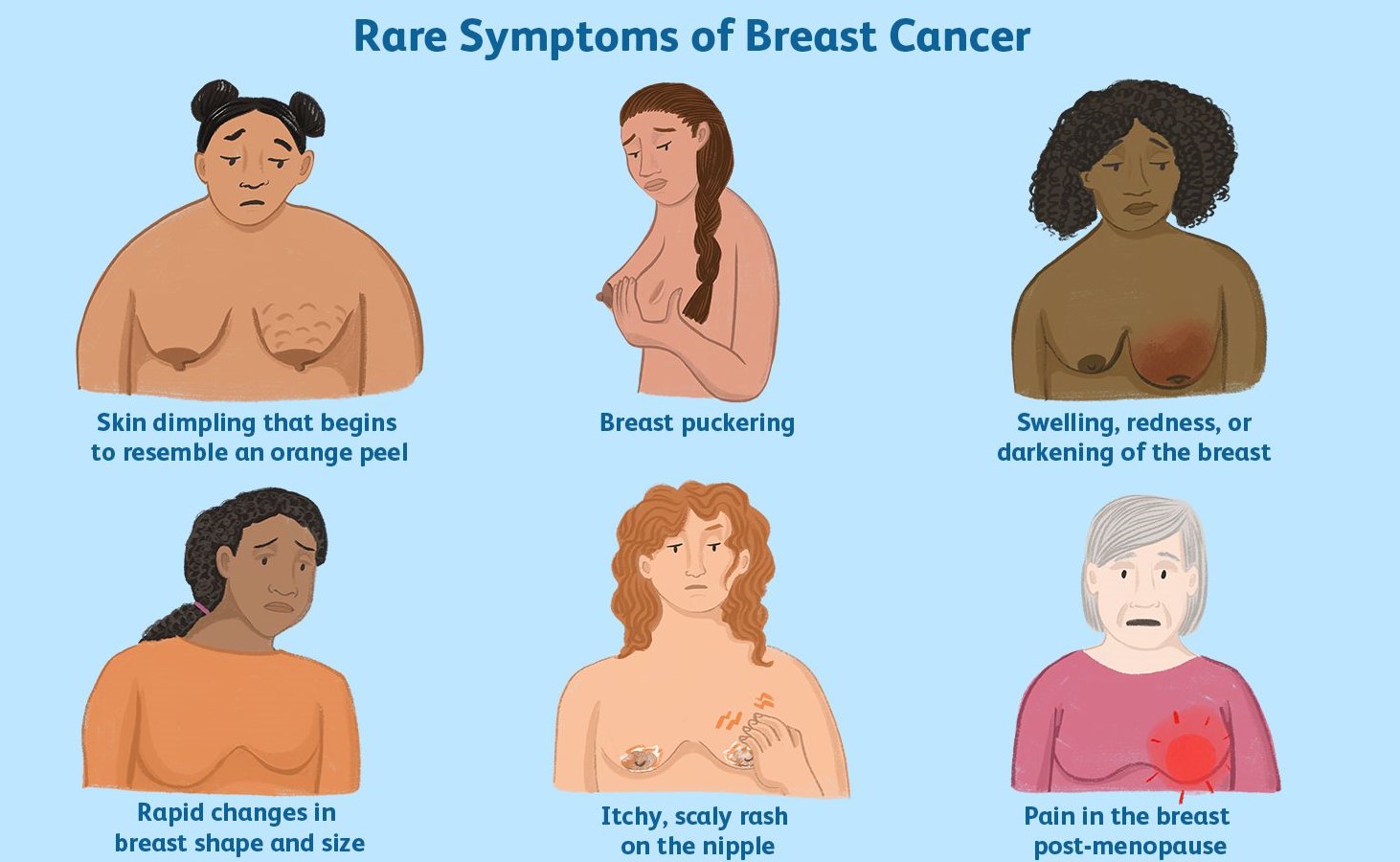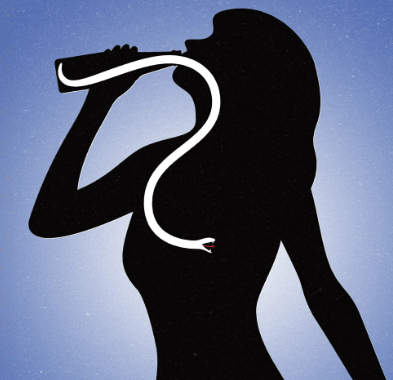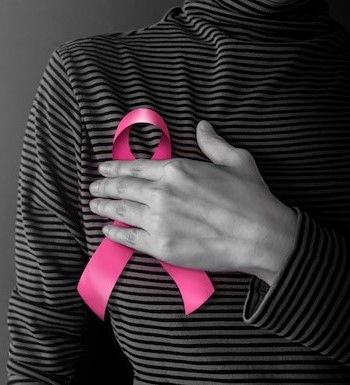Breast cancer affects millions of people, mostly women, worldwide; while approximately 0.5–1% of breast cancers occur in men, according to the World Health Organisation (WHO).
The National Institutes of Health says with over 2.3 million new cases and 685,000 deaths in 2020 alone, breast cancer is the most commonly diagnosed cancer worldwide.

The NIH adds that an estimated 60% of deaths worldwide attributed to breast cancer occur in economically developing countries, including Nigeria.
Experts say that roughly half of all breast cancers occur in women with no specific risk factors other than sex and age.
According to WHO, in Nigeria, an estimated 115,950 breast cancer cases were detected in 2018, with 70,327 deaths recorded. “Breast cancer is the most common among women, while prostate cancer for men,” WHO says in a February 4, 2022 newsletter uploaded on its website.
Sadly, for many Nigerian families, behind every breast cancer diagnosis is a tale of struggle, resilience, hope and frustrations.
Risk factors
The WHO notes that being a female is the strongest breast cancer risk factor; while certain factors increase the risk of breast cancer, including increasing age, obesity, harmful use of alcohol, family history of breast cancer, history of radiation exposure, reproductive history (such as age that menstrual periods began and age at first pregnancy), tobacco use and postmenopausal hormone therapy.
“Approximately half of breast cancers develop in women who have no identifiable breast cancer risk factor other than gender (female) and age (over 40 years),” WHO submits.
 Family history of breast cancer increases the risk of breast cancer, but most women diagnosed with breast cancer do not have a known family history of the disease. In other words, lack of a known family history does not necessarily mean that a woman is at reduced risk.
Family history of breast cancer increases the risk of breast cancer, but most women diagnosed with breast cancer do not have a known family history of the disease. In other words, lack of a known family history does not necessarily mean that a woman is at reduced risk.
Certain inherited gene mutations greatly increase breast cancer risk, experts say. The most dominant being mutations in the genes BRCA1, BRCA2 and PALB-2. Women found to have mutations in these major genes may consider risk reduction strategies such as surgical removal of both breasts as did the Hollywood movie star, Angelina.
Jolie underwent what’s called a prophylactic double mastectomy. “That means she had both of her breasts removed even though she hadn’t been diagnosed with breast cancer.
“She said she did this because she carries a gene, called BRCA1, that significantly increases the odds of developing breast or ovarian cancer,” Harvard Health Review reported in May 2013.
Prevention
The best defense is often a strong offense. Here’s what you can do to prevent breast cancer:

Regular screening: Mammograms are not just medical appointments; they’re potential life-savers. Many health professionals advocate routine screening, especially for those above 40, highlighting the significance of early detection.
Body awareness: International leader in cancer treatment, Siteman Cancer Center, says early signs of breast cancer can be spotted through self-examinations. Changes or abnormalities in the breast tissue are some of the warning signs, Siteman counsels.

Diet and lifestyle: What we consume can influence our health. This is why you need a diet abundant in fruits, vegetables, poultry, and fish as they can be beneficial in reducing cancer risk.
Limit harmful substances: Excessive alcohol can elevate your risk, according to online health news publisher, WebMD. Indeed, the WHO states that more than two million new breast cancer cases were estimated in 2020, and about 100,000 of these were attributable to alcohol consumption.

“Many people, including women, are not aware that breast cancer is the most common cancer caused by alcohol among women globally. People need to know that by reducing alcohol consumption they can reduce their risk of getting cancer. It doesn’t matter what type, quality or price alcohol is,” says Dr. Marilys Corbex, Senior Technical Officer for Noncommunicable Diseases at WHO/Europe.
Again, experts at online platform, BreastCancer, warn that smoking causes a number of diseases and is linked to a higher risk of breast cancer in younger, pre-menopausal women.
“Research also has shown that there may be link between very heavy second-hand smoke exposure and breast cancer risk in postmenopausal women,” the platform states.
Genetics: If there’s a history of breast cancer in your family, being alert is crucial. Medical News Today highlights gene mutations like BRCA1 (Breast Cancer gene 1) and BRCA2 (Breast Cancer gene 2) as significant risk factors.
The role of community: Every one of us has a part to play. A neighbor, a friend, a sister, or a coworker — each diagnosis resonates within the community. Sharing knowledge, attending health seminars, and supporting local health initiatives can make a difference.
The stories of survivors, the tears of those who’ve lost loved ones, and the determination of healthcare professionals all culminate into one potent message: Together, we can.
In closing, breast cancer in Nigeria is not mere statistics. It’s a lived experience, a challenge to overcome, and a call to action.
The journey may be tough, but with knowledge, support, and determination, brighter days lie ahead. Spread the word, prioritize health, and let’s collectively strive for a Nigeria where breast cancer’s shadow diminishes with each passing day.


